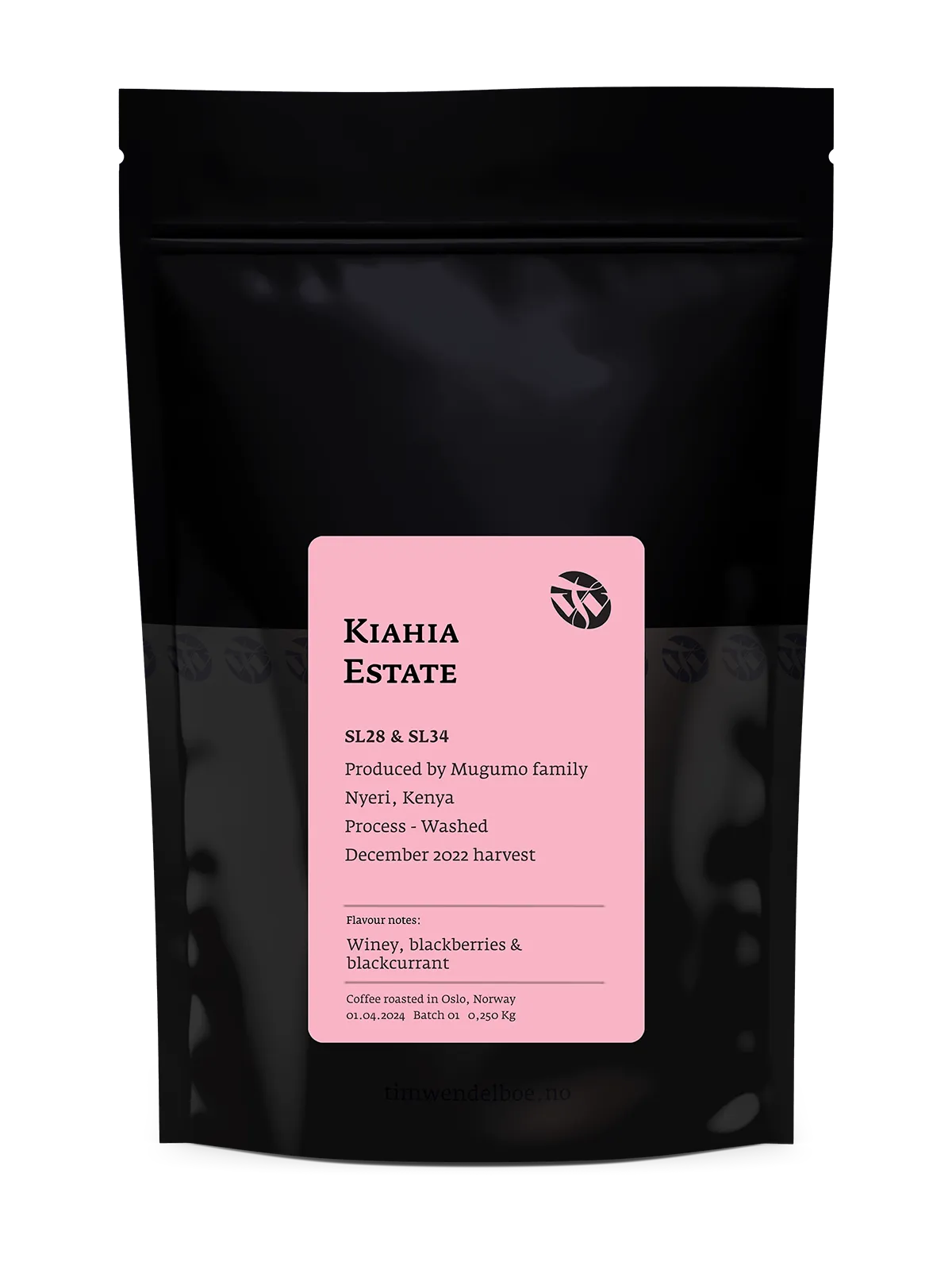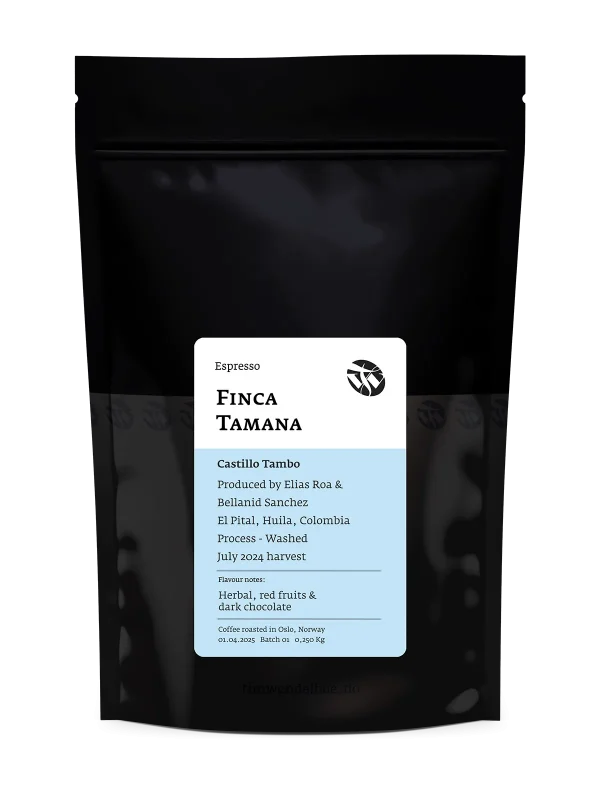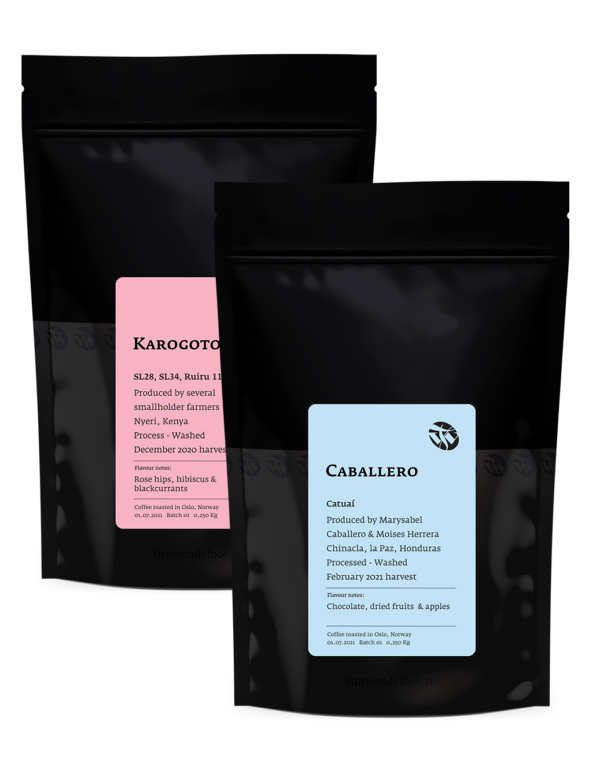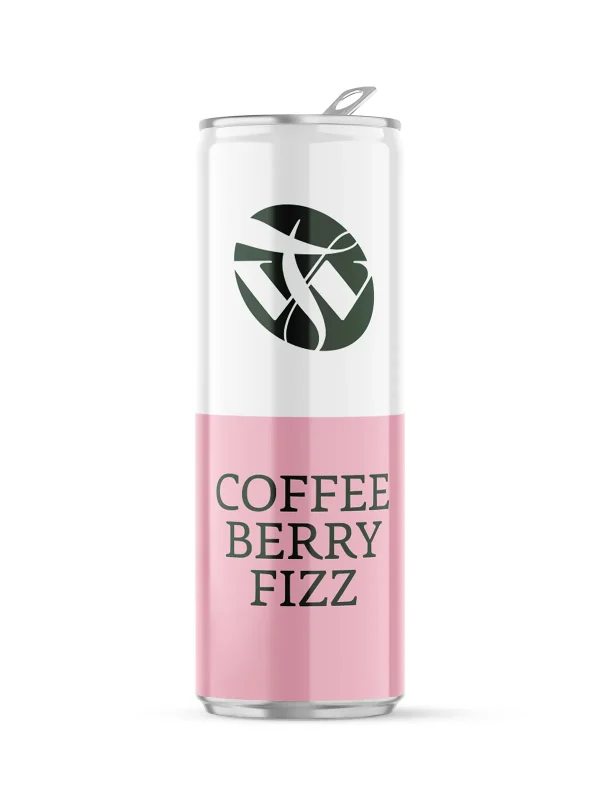| Cultivar | SL28 & SL34 |
|---|---|
| Flavour Notes | Winey, blacberries & blackcurrants |
| Producer | The Mugumo family |
| Country | Kenya |
| Region | Nyeri |
| Process | Washed |
| Harvest | December 2022 |
| Roast Profile | Light Roast |
| Contents | Whole Coffee Beans |
| Bag Size | 250g |
Kiahia Estate
kr210.00
One of the best Kenyan coffees we know which only consist of SL28 and SL34 cultivars. An intense coffee with complex flavours of fruits and berries.
Out of stock
Additional information
Tim's Notes
This is a coffee of exceptional quality from a small estate in Kenya that until recently was owned and managed by Mr. James Mugumo Munyiri. Sadly James passed away a few years ago but his son Francis, who grew up on the farm, is continuing to manage the farm together with his siblings.
The 10 hectare family farm is located on the highly productive eastern slopes of Aberdare in Nyeri, Kenya. The family has planted around 12.000 coffee trees that are only of the SL 28 and SL34 cultivars. This is probably why the coffee is so elegant and fruity as there are no hybrids like the Ruiru 11 and Batian planted on this farm. Due to renovation of the farm the quantities we were able to buy in 2023 were really small as they only produced 30 kilos of the larger beans (AA) that we normally buy and 150 kg of the smaller beans (AB). We of course bought both grades not only to support the farm but also because they both tasted delicious. Hopefully we will be able to get bigger quantities in the next years.
We have been buying coffee from Kiahia for a few years now and ever since we started buying this coffee it has been the absolute favourite coffee we have had from this beautiful origin. Expect intense flavour notes of purple berries.
The 10 hectare family farm is located on the highly productive eastern slopes of Aberdare in Nyeri, Kenya. The family has planted around 12.000 coffee trees that are only of the SL 28 and SL34 cultivars. This is probably why the coffee is so elegant and fruity as there are no hybrids like the Ruiru 11 and Batian planted on this farm. Due to renovation of the farm the quantities we were able to buy in 2023 were really small as they only produced 30 kilos of the larger beans (AA) that we normally buy and 150 kg of the smaller beans (AB). We of course bought both grades not only to support the farm but also because they both tasted delicious. Hopefully we will be able to get bigger quantities in the next years.
We have been buying coffee from Kiahia for a few years now and ever since we started buying this coffee it has been the absolute favourite coffee we have had from this beautiful origin. Expect intense flavour notes of purple berries.
Cultivar
SL28 is one of the most popular cultivars grown in Kenya because of its high yields and superior quality in the cup. It is no secret that I love this fruity cultivar that at its best taste like black currant juice, rhubarb or rose hip tea. SL28 was a selection made by the Scott Agricultural Laboratories in the 1930’s and along with the SL34 cultivar it is the most commonly grown cultivar in Kenya and an important reason why everyone thinks about fruity coffees when they speak of Kenyan coffees.
Process
Picking and sorting
- The coffee cherries are hand picked by hired seasonal workers. Before processing, the ripe cherries are separated from the inferior ones. The different qualities are processed separately.
- The cherries are depulped and graded by using an old Aagard disc de-pulper that uses water and gravity to sort dense beans from less dense beans. Coffee of different grades are moved to separate fermentation tanks where the parchment coffee, with it’s mucilage still on, is dry fermented for about 12 hours over night. After fermentation the coffee is washed in clean water and graded once again by gravity. The more dense beans are dried separately from the beans with lower density and inferior quality.
- The coffees are dried on elevated drying tables, where defect parchment coffee gets sorted out by hand. Drying the coffee takes about 10 – 14 days. During daytime the coffees are raked to ensure even drying. The drying tables are covered during the hottest times of the day to avoid over heating and also at night time to prevent condensation. The drying process is finished when the moisture content in the coffee beans is between 10-12%. The coffees we buy from Kenya are always vacuum packed before they are shipped to Norway.
Shipping
For our Norwegian customers, we offer three shipping options:
- Pakke i Postkassen - With Pakke i Postkassen, tracking is provided, and delivery is estimated within 2-3 business days.
- Pakke til hentested - The parcel can be collected from a Post in Store, Post Office, parcel locker, or parcel box. This option includes tracking, with delivery expected within 1-5 business days.
- Norwegian Post, No Tracking (Brevpost) - This option does not offer tracking. Delivery is estimated within 2-5 business days.
How To Brew
Filter
- We strongly recommend using the correct measurements and brewing techniques when you brew our coffees. Use a digital scale both to measure water and coffee in order to get consistent results, and we recommend using between 60 to 70 grams of coffee per litre (1000g) of water, depending on the brewing method, water quality and coffee used.
- We strongly recommend using VST filter baskets. Both the 18g, 20g and the 22g basket is great for our coffee. The VST filters makes it a lot easier to extract the espresso properly which gives a lot more sweetness in the cup. They are also more or less identical to each other which makes it easy to be more consistent when brewing on several groups at the same time. You can buy the filters on our webshop, just make sure they fit your machine (ours fits all La Marzocco machines and machines with 58mm filter baskets). With the VST 18g filter basket, we recommend the following brewing parameters: 18-19g freshly-ground coffee, 25-35s brewing time, 35-38g of final brew liquid in the cup, 93°C-94°C brew water temperature.




